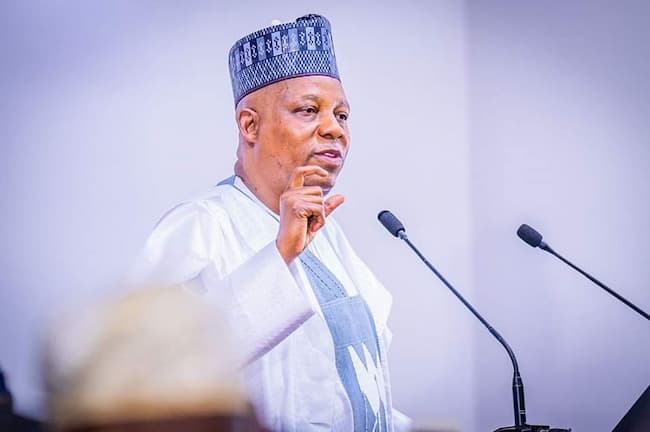Vice President Kashim Shettima revealed that the Federal Government’s healthcare reforms have sparked over 4.8 billion dollars in prospective investment.
Shettima, speaking at the Sahad Hospitals commissioning ceremony in Abuja, offered a comprehensive approach to solve long-standing difficulties and move Nigeria’s healthcare system forward.
He stressed the importance of unity in the health industry, saying, “Our health sector demands that we all work together. This day’s promise is too great to pass up.”
Shettima emphasized the government’s commitment to revitalizing the healthcare system, including reforms based on a solid roadmap aimed at addressing recurring difficulties.
The Vice President acknowledged challenges in the healthcare sector, including surging medicine costs, long hospital waiting times, and a shortage of health workers.
He emphasised the importance of private sector involvement in improving access to quality healthcare.
Shettima praised the Chairman/Founder of Sahad Group of Companies, Alhaji Ibrahim Mijinyawa, for his contributions to healthcare and his commitment to touching lives through his business. The Minister of State for Health and Social Welfare, Dr. Tunji Alausa, described the hospital as a new chapter in Nigerian healthcare.
He added that the establishment of the hospital was a vision that exemplified what could be achieved when public-spirited individuals invest in their fellow citizens’ health.
The Vice Chairman of Sahad Hospital, Dr. Shamsuddeen Aliyu, described the hospital as a state-of-the-art facility, showcasing their commitment to providing quality healthcare.
According to him, the hospital represents more than just a physical structure; it embodies the vision for a healthier future where everyone has access to comprehensive and compassionate care. He explained that Sahad Hospital has a 200-bed capacity with seven operating theatres, 13 dialysis machines, as well as 10-bed ICU units.













